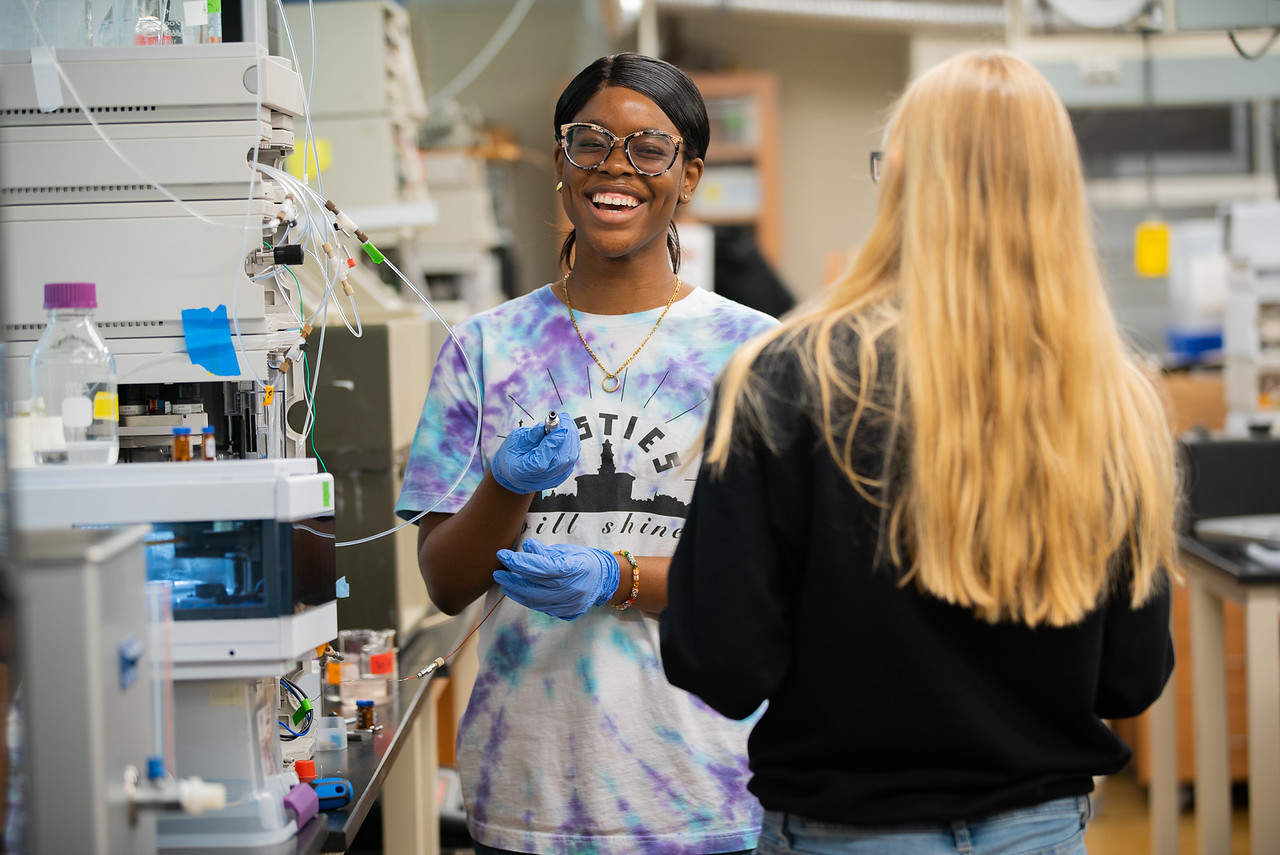Gustavus Adolphus College has been awarded a grant of $493,065 by the Howard Hughes Medical Institute’s (HHMI) Science Education Program to support the medical research organization’s efforts to help higher ed STEM programs increase their capacities for inclusion.
HHMI’s Inclusive Excellence 3 (IE3) initiative was designed to establish and execute inclusivity policies that will help students, particularly those belonging to historically excluded groups, feel that they belong and be more prepared to thrive in the sciences. Collaboration is a hallmark of IE3, which uses a shared approach among grantee schools that leverages the problem-solving potential of diversity and recognizes that necessary and impactful changes will more readily arise if colleges and universities work together on these goals.
Among the practices that can help achieve inclusivity aims are engaging in reflection, listening, and accountability. This can develop a dynamic stance toward inclusive excellence via meaningful evaluation of effective and inclusive teaching, which may arise through changes in policy, effective instructor development, and identifying optimal sources of evidence. Grantees will conduct ongoing developmental self-study and document their collective journey. Funds from HHMI will support individual and collective institutional efforts.
To supplement and expand upon the HHMI grant, Gustavus has committed internal funding to ensure equitable access to HHMI programming across all disciplines, including non-STEM departments and faculty. “We are excited that this project will make space for Gustavus to transform students’ experiences in the college classroom and laboratory, working toward our vision that all students feel welcome and have the tools they need to succeed,” says Julie Bartley, project director for the HHMI initiative.
For the HHMI program, Gustavus will be part of a Learning Community Cluster (LCC), a cohort of 16 institutions whose proposal for the grant aimed to leverage the collective experience, resources, and efforts of these institutions to develop and disseminate policies, modes of instructor development, and sources of evidence that will allow schools to incentivize, foster and evaluate inclusive teaching, disrupt exclusionary norms, and more closely approach inclusive excellence. (There are seven LCCs nationwide.) All LCC participants will meet virtually every month and annually in person to update each other on progress and share insights and best practices.
The LCC has three primary projects:
- To examine, enact, and evaluate clearly articulated policies that incentivize and reward inclusive teaching, increasing its relevance to promotion and tenure.
- To develop models of instructor development that can reach all or most of our faculty with the support needed to bring inclusive practices to the classroom.
- To identify and develop best practices in the use of holistic evidence to evaluate teaching.
The instructor development component will be the primary focus of Gustavus, working with the other institutions to help faculty and departments identify tractable steps to improve STEM inclusion and belonging, and providing the support and resources to implement effective change. This will include engaging STEM student leaders.
Gustavus also will contribute to the policy project by collaborating with its partners to ensure that decision-makers understand that inclusion and equity are integral to effective teaching, and that they have the tools they need to support and recognize inclusive teaching in their faculty review, promotion, and tenure decisions. To fulfill its project objectives, Gustavus will gather and analyze data; advance recognition of inclusion as part of faculty review processes; support the development of curricula that enhance students’ sense of belonging; support faculty in making courses and pedagogies more inclusive; and develop student leaders who promote and co-create a more inclusive STEM learning environment.

Leave a Reply